
A baby died two days after he was born at the Canberra Hospital. Photo: ACT Government.
CONTENT WARNING: This article contains distressing content.
The birth of a baby at the Canberra Hospital, who tragically died just two days after he was born, involved “a series of clinical shortcomings and failures”, a coroner has found.
The boy, given the pseudonym Baby X, died from injuries sustained during his birth, which ACT Coroner Ken Archer said were inadequately treated in the neonatal intensive care unit (NICU).
“The inadequacy of his treatment contributed to the cause of his death,” he said when handing down his findings for the inquest into the boy’s death earlier this week.
Baby X was born on 12 October 2017. It was his mother’s first pregnancy after conceiving him through in-vitro fertilisation, and there was a difficult and prolonged labour before he was delivered by caesarean.
He was born in a critical condition and was taken to the NICU for treatment where he was resuscitated and then intubated.
Coroner Archer said during the birthing process, he suffered a severe injury to his scalp, which caused a large brain bleed. But this was only detected when he went into cardiac arrest, about eight hours after his birth, and it was only then that he received fluid transfusions.
He died on 14 October 2017, aged two days and 14 hours.
Andrew Korda, a professor of obstetrics and gynaecology, reviewed the medical records and thought it took about 18 minutes to deliver the baby’s head.
“It is highly likely that Baby X was deprived of oxygen for a period during this process,” Coroner Archer said.
Professor Korda thought there was an unreasonable delay in performing the caesarean; the incision used initially during the caesarean was inadequate, and the difficulty in disengaging the baby’s severely impacted head during the caesarean led to a prolonged period of hypoxia.
Hypoxia refers to not having enough oxygen in a body’s tissues.
Professor Mike O’Connor, an obstetrician and gynaecologist, thought a Kiwi vacuum cup had not been applied to the baby’s head correctly during an attempt to extract him before performing the caesarean.
He said the incorrect placement of suction cups was associated with brain bleeds.
A Canberra Health Services (CHS) paediatrician thought there had been an unacceptable delay in diagnosing Baby X’s bleed.
Also, consultant neonatologist Professor Simon Mitchell believed the baby would likely have survived if the brain bleed had been identified and appropriately managed.
CHS didn’t notify the chief coroner of Baby X’s death until mid-2019. Coroner Archer decided a public hearing into his death was unnecessary, despite the baby’s parents asking him to hold one, as he said there was enough evidence available to allow him to make findings.
The coroner found the vacuum cup was positioned incorrectly, the brain bleed was caused by the vacuum cup process, and the move to deliver him by caesarean was “unreasonably delayed”.
“Consistent with Professor Mitchell’s report, I find that the main identifiable factor in the cause of the subgaleal haemorrhage [the brain bleed] was the unsuccessful attempt at Kiwi vacuum extraction,” he said.
However, he could not say if the earlier identification and treatment of the bleed would have saved his life.
“The failure to provide him with adequate care after his birth deprived him of a chance of survival,” Coroner Archer said.
“The birthing process was attended by a number of clinical decisions, actions, and judgements that were wrong or in error.”
He said CHS had implemented changes to relevant procedures since Baby X’s death, but he did make adverse comments about CHS and two doctors involved with the birth.
When contacted for comment by Region, a CHS spokesperson said they wanted to extend their sincere condolences to the family of Baby X and acknowledged the grief, loss and sadness the family has experienced.
“Following Baby X’s tragic death and CHS internal clinical review process, we introduced a number of changes to prevent this happening again,” the spokesperson said.
“The coroner made no further recommendations for CHS beyond the changes already made.
“We will continue to consider further opportunities to improve existing systems and processes and keep improving the quality of services to our patients.”
If you or someone you know needs help, you can contact:
Lifeline’s 24-hour crisis support line – 13 11 14
Suicide Call Back Service – 1300 659 467
Kids Helpline – 1800 551 800 or kidshelpline.com.au
MensLine Australia – 1300 789 978.












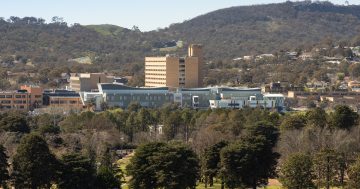
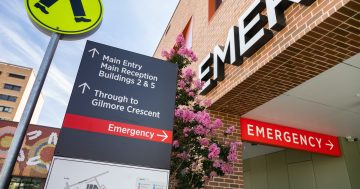
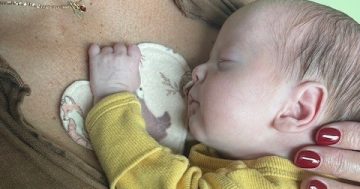
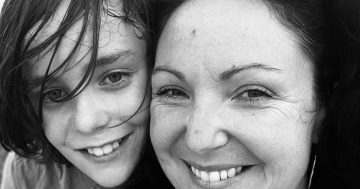
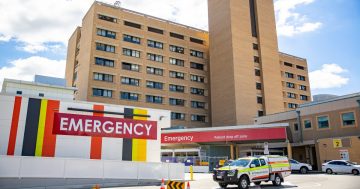

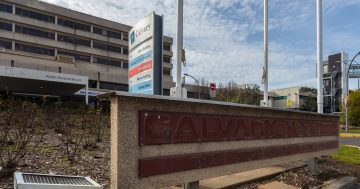


Haha, Governments aren't interested in road safety if it costs money. They are only interested if… View